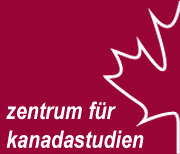14th Comparative Canadian Literature Graduate Student Conference
April 1 – 2, 2016
Université de Sherbrooke, Québec/Canada
The 21st century in Canada is marked by an ongoing discussion about settler/Indigenous relations. Recent events suggest a changing social landscape for Indigenous peoples in Canada, and it is obviously of vital importance to Canada’s future to resolve issues of land claims, environmental protection, self-governance, discrimination, re-appropriation of history, culture, language and identity. Contemporary social and political movements like Idle No More and No More Stolen Sisters (a human rights campaign calling attention to the extensively high rates of missing and murdered Indigenous women in Canada) as well as the report of the Truth and Reconciliation Commission (2015) have highlighted the reality that Indigenous peoples in Canada face today. Yet the recent nomination of two Indigenous Ministers in the Liberal cabinet, the inclusion of Indigenous leaders at the global climate change summit in Paris and the growing interest in Indigenous studies all indicate a hopeful turn in the recognition of Indigenous governance in Canada and Quebec as well as in the reconciliation between Canada’s Indigenous peoples and settlers.
Literature represents one possible route to cultural reconciliation. The 14th Graduate Student Conference “Rethinking Comparative Canadian Literature: Indigenous Methodologies and Other Contemporary Approaches” will highlight the potential of indigenous and alternative ways of reading, writing, and thinking to question, but also to enrich established theoretical and analytical frameworks in Comparative Canadian literature.
The organizers will accept papers in English and French dealing with, but not restricted to, the following topics:
- Indigenous methodologies / decolonization
- Feminist, postcolonial and other contemporary theories
- Subaltern voices, counter-narratives, resistance narratives, culture from below, grassroots
- movements
- Cultural re-appropriation and literary authority
- Diverse forms of writing and self-representation, including Indigenous orature
- Theorizing Comparative Canadian literature
- Mainstream (English-Canadian and Québécois literatures) and minority literatures (immigrant
- and Indigenous literatures)
- Language questions (English, French, foreign and Indigenous languages)
- Translation studies
The conference will take place from April 1-2, 2016 on the main campus at Université de Sherbrooke and is designed as an open space of gathering for young scholars interested in Comparative Canadian Literature and Translation Studies. As the University’s Comparative Canadian Literature program is unique in the world, we invite graduate students (both MA and PhD) from different disciplines (Comparative literature, English/Canadian/French/Québécois literatures, Translation studies, Indigenous studies, Cultural studies, Film studies, History etc.) to submit paper and poster proposals. Submissions from advanced undergraduate students will be taken into consideration if the proposed abstracts indicate an outstanding and original contribution.
Please submit your abstract of no more than 250 words and a short biographical note (150 words) to this e-mail address. Be sure to include your name, affiliation and degree, e-mail address as well as the title of your presentation and upload the documents as an attachment (PDF format).
Submission deadline: January 31st, 2016.


